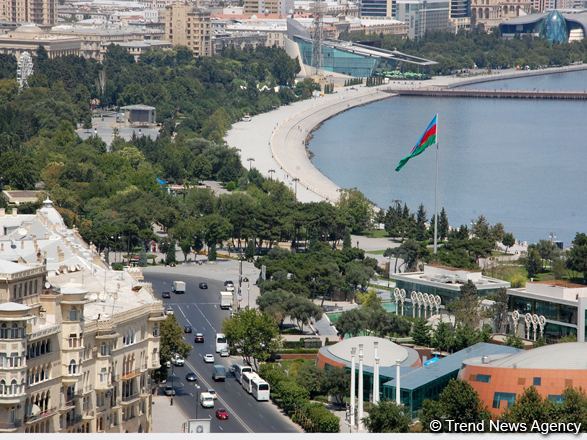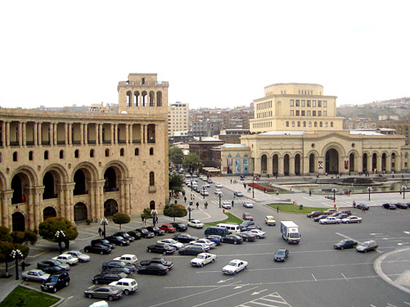Anger in Yerevan as Armenia, Azerbaijan agree to end war in Nagorno-Karabakh

Armenia effectively admits defeat in the disputed region of Nagorno-Karabakh, and will be forced to cede territory held since 1994.
Armenia, Azerbaijan and Russia signed an agreement early on November 10 to end almost two months of fighting in the disputed region of Nagorno-Karabakh.
The agreement, which came just hours after Armenian officials confirmed that the key city of Shusha (known as Shushi in Armenia), the second-biggest city in the enclave, had been taken by Azeri forces, was described by Armenian Prime Minister Nikol Pashinyan as “unspeakably painful”.
“[This] agreement as the best possible solution to the current situation,” said Mr Pashinyan. “While it is unspeakably painful for me personally and for our people, it follows an in-depth analysis of the military situation”. The agreement follows weeks of advances by Azeri troops who, in possession of more modern weapons, have overpowered Armenian forces.
The announcement of a full ceasefire sparked a violent response in Armenia, with angry protesters storming government buildings in Yerevan where they ransacked offices and broke windows. Videos published on social media appeared to show protesters dragging Ararat Mirzoyan, the speaker of the country’s parliament, out of his car and beating him on the street. His injuries were so bad that he had to be hospitalised.
Protesters also attempted to storm Mr Pashinyan’s home but were turned back by a heavy police presence.
Azerbaijan’s defence ministry released a video Monday showing the country’s flag flying on public buildings in Shusha, which is just 10 kilometres from the regional capital Stepanakert. The video shows deserted streets and damaged buildings.
Later on Monday, Azerbaijan apologised for downing a Russian helicopter near the Armenia-Azerbaijan border, saying it was an accident.
Azerbaijan’s president Ilham Aliyev said the agreement was “historic” and that Armenia had been forced to negotiate because of Azerbaijan’s military successes.
“This statement has historic significance,” he wrote on Twitter. “This statement constitutes Armenia’s capitulation. This statement puts an end to the years-long occupation. This statement is our Glorious Victory!”
Russian President Vladimir Putin said the two sides would hold on to areas in Nagorno-Karabakh under their control and that Russian peacekeepers would be deployed along frontlines and to secure a corridor connecting the region with Armenia. However, Armenia will be forced to hand the strip of land – which it has occupied since 1994 – that sits between Nagorno-Karabakh and Armenia by December 1.
The unrest in Nagorno-Karabakh dates back to the collapse of the Soviet Union, when the region, backed by Armenia, declared independence from Azerbaijan.
Shusha was captured by Armenian forces in 1992 and Nagorno-Karabakh established a de facto independence that is not recognized by most of the world. A 1994 ceasefire brought the violent conflict over the enclave to an end, but tensions continued, with irregular skirmishes between Armenian and Azerbaijani forces.
Azerbaijan has long claimed it would retake the territory, which is internationally recognized as Azerbaijani.
Since the resumption of fighting in September, as many as 5,000 people have been killed, and as many as 40,000 ethnic Armenians have been forced to flee the region.
Mr Pashinyan, who took office in 2018 the wake of widespread protests that forced the resignation of his predecessor, Serzh Sargsyan, now faces a battle to cling on to power. Protests are likely to continue, and 17 opposition parties have called for Mr Pashinyan’s resignation.
The 17 parties have vowed to overturn the peace agreement and resume fighting should they be successful in removing Mr Pashinyan’s government.
Will Lavender, a senior policy and advocacy officer at the European Friends of Armenia, a Brussels based NGO which seeks to promote EU-Armenian relations, says that it is very difficult at this point to see where things will go in Armenia.
“So far the public reaction has been very negative and we have witnessed turbulent scenes in Yerevan,” he says. “The deal is by no means seen in terms of peace, but in terms of surrender.”
Mr Lavender was also critical of the European Union, which he describes as “absent”.
“By and large this is a Russian-imposed peace, which will see Russian troops heavily ensconced in the region and will dramatically alter the balance in Russia-Armenia relationship. This will have long term implications for Armenia’s domestic politics and its relationship with the EU,” he says.
“Once again, the EU has been completely absent, despite the Eastern Partnership’s aims of bringing the rule of law and democracy to its neighbourhood. This peace has emboldened autocratic Azerbaijan and could undermine pro-western/pro-democratic trends in Armenia.”
Armenian Opposition demanding PM to resign - 'It's most shameful day in our history!'
Signing trilateral declaration proves that Azerbaijan was just standing for its rights on Karabakh - US expert
NAGORNO-KARABAKH CONFLICT10 November 2020 12:44 (UTC+04:00)

BAKU, Azerbaijan, Nov.10
By Nargiz Sadikhova - Trend:
Signing a trilateral declaration of the President of the Republic of Azerbaijan, the Prime Minister of the Republic of Armenia and the President of the Russian Federation proves to the world that Azerbaijan was just standing for its rights on Nagorno Karabakh, US-based military expert Benjamin Minik told Trend.
“If the agreement holds, truthfully this will be an amazing thing,” Minik said.
Minik explained that Azerbaijan can now focus on rebuilding the areas that have been occupied for 30 years and hundreds of thousands of people will have homes again.
“This proves to the world that Azerbaijan was just standing for its rights. I am proud of, and for all of you. I'm proud to have stood with all of you,” Minik said.
Following over a month of military action to liberate its territories from Armenian occupation, Azerbaijan has pushed Armenia to sign the surrender document. A joint statement on the matter was made by Azerbaijani president, Armenia's PM and the president of Russia.
A complete ceasefire and a cessation of all hostilities in the zone of the Nagorno-Karabakh conflict is introduced at 00:00 hours (Moscow time) on 10 November 2020.
Armenian Armed Forces launched a large-scale military attack on positions of Azerbaijani army on the front line, using large-caliber weapons, mortars and artillery on Sept. 27. Azerbaijan responded with a counter-offensive along the entire front.
Back in July 2020, Armenian Armed Forces violated the ceasefire in the direction of Azerbaijan's Tovuz district. As a result of Azerbaijan's retaliation, the opposing forces were silenced. The fighting continued the following days as well. Azerbaijan lost a number of military personnel members, who died fighting off the attacks of the Armenian Armed Forces.
The conflict between the two South Caucasus countries began in 1988 when Armenia made territorial claims against Azerbaijan. As a result of the ensuing war, Armenian Armed Forces occupied 20 percent of Azerbaijan, including the Nagorno-Karabakh region and seven surrounding districts. The 1994 ceasefire agreement was followed by peace negotiations.

BAKU, Azerbaijan, Nov.10
Trend:
The most shameful page of our history has been written today, said Iveta Tonoyan, a member of the Prosperous Armenia opposition party, Trend reports.
“A few hours ago, the Prosperous Armenia and a number of other parties demanded the resignation of the Prime Minister. After all this, the resignation is the least that Pashinyan must do,” Tonoyan said.
The MP stated that she was near the building of the Armenian government in order to prevent clashes between citizens and the police.
“We came to calm the anger of people, which is quite objective and understandable. Here are people whose fathers, brothers and sons fell on the battlefield. And at the same time, secretly, without taking into account public opinion, it was decided to transfer the lands, give Shusha away with a piece of paper", noted the MP.
She added that in the morning of Nov.10 the party will convene a meeting under the chairmanship of the party leader Gagik Tsarukyan, after which she will make a statement.
President of the Republic of Azerbaijan, Prime Minister of the Republic of Armenia and President of the Russian Federation made a joint statement. A complete ceasefire and a cessation of all hostilities in the zone of the Nagorno-Karabakh conflict shall be introduced at 00:00 hours Moscow time on 10 November 2020.
Armenian Armed Forces launched a large-scale military attack on positions of Azerbaijani army on the front line, using large-caliber weapons, mortars and artillery on Sept. 27. Azerbaijan responded with a counter-offensive along the entire front. Currently, Azerbaijan continues the liberation of its territories from Armenian troops.
Back in July 2020, Armenian Armed Forces violated the ceasefire in the direction of Azerbaijan's Tovuz district. As a result of Azerbaijan's retaliation, the opposing forces were silenced. The fighting continued the following days as well. Azerbaijan lost a number of military personnel members, who died fighting off the attacks of the Armenian Armed Forces.
The conflict between the two South Caucasus countries began in 1988 when Armenia made territorial claims against Azerbaijan. As a result of the ensuing war, Armenian Armed Forces occupied 20 percent of Azerbaijan, including the Nagorno-Karabakh region and seven surrounding districts. The 1994 ceasefire agreement was followed by peace negotiations.
President of the Republic of Azerbaijan, Prime Minister of the Republic of Armenia and President of the Russian Federation made a joint statement. A complete ceasefire and a cessation of all hostilities in the zone of the Nagorno-Karabakh conflict shall be introduced at 00:00 hours Moscow time on 10 November 2020.
Armenian Armed Forces launched a large-scale military attack on positions of Azerbaijani army on the front line, using large-caliber weapons, mortars and artillery on Sept. 27. Azerbaijan responded with a counter-offensive along the entire front. Currently, Azerbaijan continues the liberation of its territories from Armenian troops.
Back in July 2020, Armenian Armed Forces violated the ceasefire in the direction of Azerbaijan's Tovuz district. As a result of Azerbaijan's retaliation, the opposing forces were silenced. The fighting continued the following days as well. Azerbaijan lost a number of military personnel members, who died fighting off the attacks of the Armenian Armed Forces.
The conflict between the two South Caucasus countries began in 1988 when Armenia made territorial claims against Azerbaijan. As a result of the ensuing war, Armenian Armed Forces occupied 20 percent of Azerbaijan, including the Nagorno-Karabakh region and seven surrounding districts. The 1994 ceasefire agreement was followed by peace negotiation
No comments:
Post a Comment